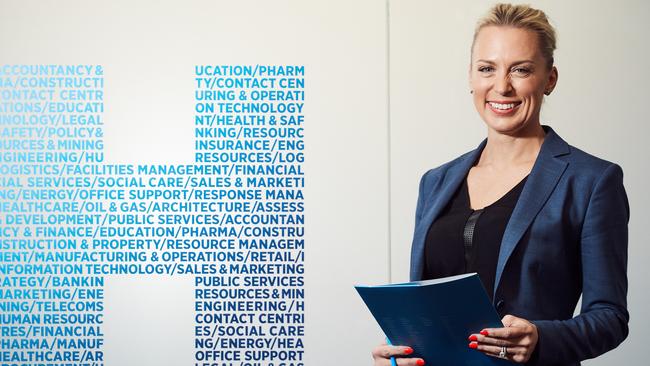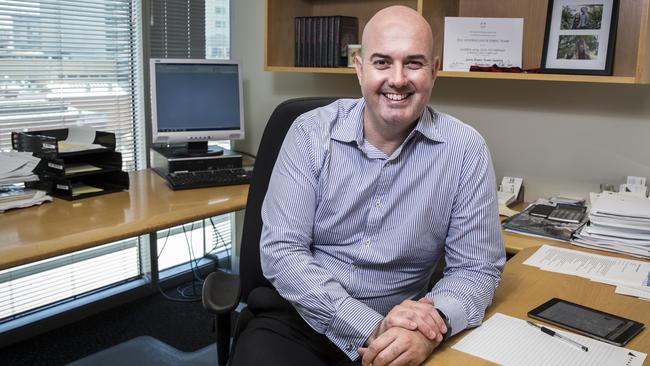How to make a career change without work experience after upskilling
Many workers have studied new courses and upskilled during their COVID-19 downtime, but can they make a career change without on-the-job experience?
- How to be matched to a job based on your skills
- Sign up to the Australian National Talent Registry here
CAREERS’ panel of expert recruiters answers a reader’s question each week. Have a question? Email careers_qs@news.com.au
Many people have been upskilling/self-teaching themselves skills to make career changes while at home in these times. As they don’t have industry/work experience, how can they make a career change into these areas and are employers flexible/willing to hire them?
Andrew Sullivan
Managing director,
Sullivan Consulting
It’s a highly competitive job market in many industries right now, so upskilling can be one good way to set yourself apart. The key to making the most of new skills is to show them in action. Even if you don’t have workplace experience, volunteer experience can help. Virtual volunteering is one way to develop experience from home. You could also create a portfolio of your work, depending on the skills you’ve developed. The other key to getting hired is to upskill in the right areas. Find out what skills are in demand with employers in the industry you’re interested in and focus on them.

Alexandra Rosser
Head of Organisational
Psychology Consulting,
Stillwell Management
Consultants
More than ever employers/recruiters are valuing evidence that a candidate is proactive, agile and adaptive and has the intelligence, perseverance and motivation to identify, and obtain, skills and/or qualifications which they can see may be in demand and for which they believe themselves suited. The caveat to this is that some roles require a specific type or level of qualification, experience or training which may not be easily acquired through self-teaching or online offerings and candidates will still be assessed on what they offer overall as compared with others in a presently highly competitive job market. Depending on how different a new career path is from one’s former choice, entry may necessitate networking with contacts and industry associations, volunteering or doing internships and seeking assistance from a professional recruiter in addition to active job search and application.

Lisa Morris
Director,
Hays
Pre-pandemic, employers were becoming more willing to consider career changes and viewed their transferable skills favourably. Once the world of work recovers and skills shortages hit hard once more, this will likely be the case again. Until then, however, you’re unlikely to make a successful career change by simply completing a course and hoping an employer will see your potential. You need to prove your skills and that can only be done with relevant on-the-job experience. Many courses require you to undertake some sort of practical placement before you can qualify. This experience allows you to quantify your skills in your CV and share real-life examples to prove your abilities in an interview. However, if your course doesn’t require you to complete work experience, it’s advisable to independently look for an opportunity. Even one or two weeks of work experience will put you ahead of candidates who lack such experience and can boost your chance of making a successful career change. It’s also advisable to highlight any transferable skills to show how your previous experience relates to the requirements of the new role you’re applying for.

Justin Hinora
Executive consultant,
Hender Consulting
It’s important to understand that it is currently a “buyers” market for employers. Competition for jobs was tough even before COVID and since, the job market has become even more competitive for jobseekers. Behavioural competencies are considered as important, if not more important, than simply obtaining a new skill or having recently completed a course. When exploring an opportunity in a new area or industry, look for opportunities to articulate and demonstrate the transferability of relevant behavioural competencies, such as resilience, adaptability, etc. Explain your motivation for wanting to make this career change or transition and avoid being generic.

MORE NEWS
The pros and cons of professional resume writing services
The worst things jobseekers can do in a job interview
How to make a job application stand out among the competition
News Corp has partnered with HR technology company Shortlyster to develop the Australian National Talent Registry, an initiative to help get Australians back to work, as COVID-19 has left hundreds of thousands of people either jobless or with reduced working hours.
The registry aims to connect jobseekers, whose employment does not have to have been directly affected by the coronavirus pandemic to participate, with employers on cultural-fit and psychological level, not just qualifications and experience.
It is free for jobseekers to sign up. To sign up, visit adelaidenow.com.au/careers
